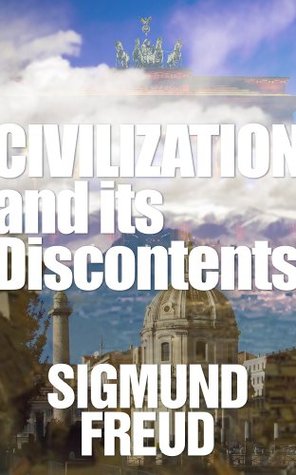More on this book
Community
Kindle Notes & Highlights
We never have so little protection against suffering as when we are in love; we are never so desolate as when we have lost the object of our love or its love for us.
The predominantly erotic person will give priority to his emotional relations with others; the narcissistic person, being more self-sufficient, will seek the most important satisfactions in his own internal mental processes; the man of action will not give up contact with the external world, on which he can test his strength.
Just as the prudent merchant avoids tying up all his capital in one place, so worldly wisdom will perhaps advise us not to expect all our satisfaction to come from one endeavour. Success is never certain; it depends on the coincidence of many factors, and perhaps on none more than the capacity of our psychical constitution to adapt its functioning to the environment and to exploit the latter for the attainment of pleasure.
Religion interferes with this play of selection and adaptation by forcing on everyone indiscriminately its own path to the attainment of happiness and protection from suffering. Its technique consists in reducing the value of life and distorting the picture of the real world by means of delusion; and this presupposes the intimidation of the intelligence. At this price, by forcibly fixing human beings in a state of psychical infantilism and drawing them into a mass delusion, religion succeeds in saving many of them from individual neurosis. But it hardly does any more; there are, as we have
...more
Order is a kind of compulsion to repeat, which, once a pattern is established, determines when, where and how something is to be done, so that there is no hesitation or vacillation in identical cases. The benefits of order are undeniable; it enables people to make the best use of space and time, while sparing their mental forces. One would be entitled to expect that it had established itself in human activities from the start and without any difficulty; and one may well be surprised that this is not so -- that people show a natural tendency to be careless, irregular and unreliable in their
...more
Much of mankind's struggle is taken up with the task of finding a suitable, that is to say a happy accommodation, between the claims of the individual and the mass claims of civilization. One of the problems affecting the fate of mankind is whether such an accommodation can be achieved through a particular moulding of civilization or whether the conflict is irreconcilable.
We said that, since sexual (genital) love had afforded man the most potent experiences of satisfaction and had actually supplied him with the model for all happiness, this should have told him that he would do well to go on seeking his happiness in the sphere of sexual relations and place genital eroticism at the centre of his life. We went on to say that by doing this one made oneself dangerously dependent on part of the external world, the chosen love-object, that one was exposed to extreme suffering if one was spurned by it or lost it through infidelity or death. For this reason sages in
...more
Civilized man has traded in a portion of his chances of happiness for a certain measure of security.
The more virtuous a person is, the sterner and more distrustful is his conscience, so that the very people who have attained the highest degree of saintliness are in the end the ones who accuse themselves of being most sinful.
Hence, it is quite conceivable that even the sense of guilt engendered by civilization is not recognized as such, but remains for the most part unconscious, or manifests itself as an unease, a discontent, for which other motivations are sought. The religions, at least, have never ignored the part that a sense of guilt plays in civilization.
The analogy between the development of civilization and that of the individual can be significantly extended. One can justifiably maintain that the community too evolves a super-ego and that the development of civilization takes place under its influence. Anyone who is conversant with different civilizations may find it tempting to pursue this equation in detail.
The super-ego of a cultural epoch has an origin not unlike that of the individual; it rests upon the impression left behind by the personalities of great leaders, people who were endowed with immense spiritual or intellectual power or in whom some human striving found its strongest and purest, and hence often most one-sided, expression. In many cases the analogy goes even further, in that in their lifetime these figures were quite often, though not always, mocked and abused by others, or even cruelly done to death -- just as indeed the primeval father did not attain divinity until long after
...more
Everything is done in haste, at fever pitch. The night is used for travel, the day for business; even 'holiday trips' put a strain on the nervous system. Great political, industrial and financial crises carry this excitement into far wider areas of the population than ever before. Interest in political life has become universal: tempers are inflamed by political, religious and social struggles, party politics, electioneering and the immense growth of trade-unionism; people are forced to engage in constant mental activity and robbed of the time they need for relaxation, sleep and rest. Big-city
...more


